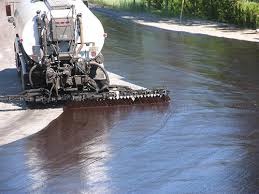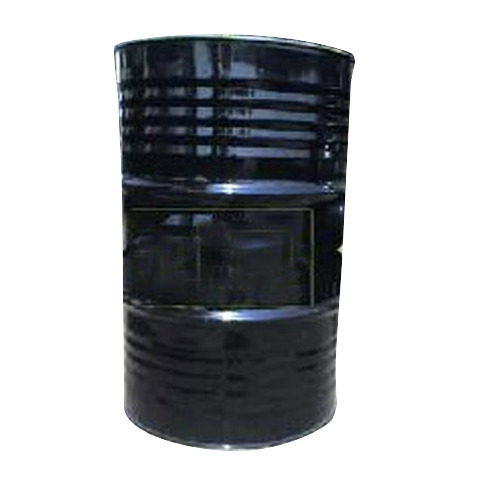About Bitumen Emulsion
GRADES: RAPID SETTING (RS), MEDIUM SETTING (MS) & SLOW SETTING (SS)
Bitumen in different forms is used as a Binder in Road Construction at Ambient Temperature. Bitumen is made workable by emulsifying to form Bitumen Emulsion. Engineers all over the Country have acknowledged the necessity of emulsified Bitumen for Road Repairs/Constructions because of its reliability, economy and ease of application.
Considering various benefits associated with Bitumen Emulsions over conventional Bitumen to keep pace with the technology innovations in the Field of Road binders, our most advanced Research & Development Centre at Nandesari, Baroda has developed world class formulations for Cationic Bitumen Emulsions after extensive research work. SWASTIK Cationic Bitumen Emulsion complies with BIS Specifications IS: 8887- 1995 as well as International Specifications. Performance evaluation of test sections laid on national highways has established the efficacy of this all weather eco-friendly road binder.
Uses
- Surface Dressing
- Stabilizing Coat in Road Work
As Per IS-8887 Considering various benefits associated with Bitumen Emulsions over conventional Bitumen to keep pace with the technology innovations in the Field of Road binders, our most advanced Research & Development Center at Nandesari, Baroda has developed world class formulations for Cationic Bitumen Emulsions after extensive research work. SWASTIK Cationic Bitumen Emulsion complies with BIS Specifications IS: 8887- 1995 as well as International Specifications. Performance evaluation of test sections laid on national highways has established the efficacy of this all weather eco-friendly road bind.
Variety
Bitumen Emulsions are classified in three Grades i.e. Rapid Setting, Medium Setting, & Slow Setting.
- Rapid Setting (RS) – Emulsion Break is rapid and is further subdivided into RS-1 & RS-2
- Medium Setting (MS) – Emulsion Break is slower than RS and can be used for coarse materials with more amounts of fine aggregates.
- Slow Setting (SS) – Emulsion Break is slowest and is generally used with fine aggregates. It is further subdivided into SS-1 & SS-2
Technical Specifications
| Sr.No. | Characteristic | RS-1 | RS-2 | MS | SS-1 | SS-2 |
|---|---|---|---|---|---|---|
| 1. | Residue on 600 micron IS Sieve, % mass Max. | 0.05 | 0.05 | 0.05 | 0.05 | 0.05 |
| 2.a | Viscosity by Say bolt Furol Viscometer, Second at 25°C | - | - | - | 20-100 | 20-100 |
| 2.b | Viscosity by Say bolt Furol Viscometer, at 50°C | 20-100 | 100-300 | 50-300 | - | - |
| 3. | Coagulation of emulsion at low temperatures. | Nil | Nil | Nil | Nil | Nil |
| 4. | Storage stability after 24 hrs % Max. | 2 | 1 | 1 | 2 | 2 |
| 5. | Particle charge | Positive | Positive | Positive | Weak-Positive | Positive |
| 6.a | Coating ability and water resistance (a) Coating, dry aggregate | - | - | Good | - | - |
| 6.b | Coating ability and water resistance (b) Coating, after spraying | - | - | Fair | - | - |
| 6.c | Coating ability and water resistance (c) Coating, wet aggregate | - | - | Fair | - | - |
| 6.d | Coating ability and water resistance (d) Coaring, after spraying | - | - | Fair | - | - |
| 7. | Stability to mixing with cement ( % coagulation ) Max. | - | - | - | 2 | 2 |
| 8. | Miscibility with water ( Coagulation ) | Nil | Nil | Nil | - | Nil |
| 9.a | Ductility at 25° C, cm, after TFOT Min. | 60 | 67 | 65 | 50 | 60 |
| 9.b | Ductility at 25° C, cm, after TFOT Min. | 80-150 | 80-150 | 60-150 | 80-350 | 60-120 |
| 9.c | Ductility at 25° C, cm, after TFOT Min. | 50 | 50 | 50 | 50 | 50 |
| 9.d | Ductility at 25° C, cm, after TFOT Min. | 98 | 98 | 98 | 98 | 98 |
| 10.a | Distillation percent, by volume at : 190° C | - | - | - | 20-55 | - |
| 10.b | Distillation percent, by volume at : b. 225° C | - | - | - | 30-75 | - |
| 10.b | Distillation percent, by volume at : b. 260° C | - | - | - | 40-90 | - |
| 10.b | Distillation percent, by volume at : b. 315° C | - | - | - | 60-100 | - |
| 11 | Water content, percent by mass, Max | - | - | - | 60 | - |
* This product is available from our Vadodara Branch.



